Title: The Re-Trial Of Ken Saro-Wiwa
Genre: Drama
Author: Uwem Udoko
Year of Publication: 2022
Edited & Published in Nigeria by: MediaPro Publishing House, Uyo
Pagination: 119
Reviewer: Eziwho Emenike Azunwo, PhD and Finikama-Ade, Donatus.
Institution: Rivers State University, Port Harcourt, Department of Theatre and Film studies
Introduction
Uwem Udoko's The Re-trial of Ken Saro-Wiwa is a reimagined historical play based on the final events surrounding Ken Saro-Wiwa, an Ogoni and Niger Delta activist and his colleagues. The play is a blend of fiction and non-fiction, drawn from real life events of Saro-Wiwa and MOSOP's (Movement for the Survival of Ogoni People) advocacy for the environmental and human rights of the Ogoni people, a minority ethnic group in Niger-Delta South-South Nigeria against multinational oil companies, particularly the Royal Dutch Shell company and the Nigerian Military government of Gen. Sani Abacha. The events captured in this play, which led to the death of Saro-Wiwa and his eight comrades (the Ogoni nine) on 10th November 1995, took place between 1994 and 1995. The tragedy garnered international attention which led to so many negative criticisms of the Nigerian Military government as well as several suspensions from the international community.
Ken Saro-Wiwa, a writer, teacher and television producer had risen to fame on the back of his activism against the environmental degradation caused by oil spillage in Ogoniland and the exploitation and marginalization of the Ogoni people. This made him a target for the military government who were enjoying the dividends of the of oil exploration in the region without paying any attention to the plight of the people. At the peak of his campaign, a tragic and highly suspicious event would occur in Giokoo, Gokana where four Ogoni chiefs were murdered at a meeting by a mob of youths. Ken Saro-Wiwa was accused of masterminding the violence and was swiftly arrested. He and his companions were tried by a military tribunal court and sentenced to death by hanging.
The play imagines and alternate scenario where the events of history played out differently, beginning with a second trial. In this alternate scenario, the playwright uses this play to advocate for justice for the oppressed, the rule of law and a sense of fair hearing for those who stand accused of crimes in Nigeria. As a political and historical play, the dramatis personae employed are the real-life depictions of historical figures, the various settings in the play are also as accurate as in the historical tale.
Synopsis
The play begins in an army barracks where Ken Saro-Wiwa and his companions are held after their first trial for the murder of four Ogoni chiefs. An army officer informs them that the federal government has ordered a retrial of their case. The men are shocked and confused and deliberate what fate has in store for them, not knowing whether to be optimistic or pessimistic about the news just delivered to them. Ken advises them to be strong and prepare for the very worst. Later that day, their lawyer arrives to brief them on vital information concerning their case. They briefly discuss new witnesses and their former lawyer and the state propaganda against Ken after which their lawyer, known in the play simply as "Defence lawyer" leaves to return on a later date to prepare for the trial. Ken and his companions are transferred from the army barracks where they were held to a Port-Harcourt prison where they quickly local heroes within the prison. The men, inmates at the Port-Harcourt prison stand in solidarity with them and their cause and even elect to do tasks for them to make their stay bearable.
At court, the prosecution cross examines Ken on the incidents of May 21st 1994, the day the chiefs were murdered to which Ken and his companions plead "not guilty" to the charges. The prosecutor interrogates Ken on his relationship to the Head of State, his role in the events that took place at Giokoo, his supposed violent nature and his previous contracts with Shell BP amongst others. After trying without success to make anything stick, the prosecutor introduces three witnesses to testify against Ken. The first prosecution witness, an Ogoni chief named Duncan describes Ken as a stubborn and violent man who has no respect for anyone and is fond of challenging authorities. He backs his statement with a false account of Ken beating up two soldiers in June 1992 and an allegation of Ken snatching wives of Ogoni men from their husbands in pretext of trying to save them from their violent husbands. Chief Duncan blames the murder of the chiefs on Ken, he accuses Ken of brainwashing and inciting the youths into believing that Nigeria had nothing good to offer them and the elders were their enemies therefore should be stopped at all costs. The prosecutor calls his second witness, a youth activist from Giokoo who identified himself as Mr. Andrew Kpokpogri. Mr. Kpokpogri concurs that Ken encourages violence but not openly. He also shares the believe that Ken brainwashed and incited the youths. The prosecutor then calls his third witness, a woman named Madam Elizabeth Gbani a mother to one of the youths whom Ken brainwashed. She presents a couple of documents to the court, "The Man Died" by Wole Soyinka, "The Trouble with Nigeria" by Chinua Achebe and two photocopied works by Che Guevara as evidence of some of the materials her son reads as a result of him now becoming a revolutionary.
On cross examination, the defense lawyer is able to refute all the claims made by the the witnesses of the prosecutor. The first witness's claims of Ken beating two soldiers was refuted with a document from the Nigerian Road Safety Corps to one Mr. Ola Binitie, proving that the defendant, Ken wasn't at the scene of this incident. This caused Chief Douglas to reveal to the court that the story he told was a hear-say. On the second witness the defense lawyer disputed the claim of Ken being the source of the youth's anger and restlessness. He was able to argue and convince Mr. Kpopogri that the oil spillage which have devastated the land and left the youths without their traditional occupation of farming and fishing was the cause, and he agreed. While cross examining the third prosecution witness, the defense lawyer bombarded her with multiple critical questions that forced her to become hysterical in court and reveal other details about her testimony that did not align which proved that she wasn't speaking the truth.
It was the turn of the defense to question Ken and also call its own witnesses. Ken told the court that he wasn't at Giokoo to incite the mob that killed those chiefs as he had kept for Port-Harcourt earlier and that when he heard the news, he contacted the commissioner of police in Port-Harcourt who dispatched officers to the area. Ken went on to tell the court that his struggle is one of non-violence reiterating what he had told his supporters that violence would weaken their support and criminalize their struggle giving the government reasons to thwart it. The defense lawyer tendered to the court a certified copy of the Daily Times newspaper where the commissioner of police admitted his claim. The first witness the defense lawyer called up, a chief of Ogoni established that the struggle revealed a lot of hidden information about dealings between the government and the community elites and that was what enraged the youths to riot and commit the hideous acts, not Ken. He described Ken as a man of integrity citing Ken's award from the community in 1992 as testament to his character. The second defense witness, a youth leader from Giokoo simply described what transpired on the day of the murder of the chiefs as a breakdown of law and order. He went on to say that he defendant, Ken did not encourage violence as part of the struggle. The third defense witness, a contractor agreed with the testimony of the first defense witness, he exposed some of the corruption dealings between his fellow contractors and the youths that might have spurred the youths to riot. Finally, the defense lawyer called his final witness, a retired soldier who was present on the day if the riot. His testimony was one of pity for the plight of the Ogoni people, he also admitted that Ken wasn't the mastermind of the riot as it would have made his job easier if Ken had been linked to the crime at any stage of their investigation.
Back at the prison where Ken and his companions are held, there is a growing rumor amongst the inmates who have been following the case closely that justice would be denied Ken and his companions. The rumor is further intensified when it is revealed that the judgement of the case has been postponed to a later date. Ken charges some of the inmates not to disclose this information to his companions for fear of breaking their resolve while he himself sinks into deep thought. Ken is approached by one of his companions who informs him that the other companions know about the rumor and that he doesn't need to worry about them. He further encourages him and assures him of their collective loyalty to the cause.
A month later, on the day of the judgement, Ken and his colleagues are found not guilty by the judge. There is a huge jubilation inside the court as the people run to congratulate Ken and his companions.
Scrutiny of the Play
Uwem Udoko's " The Retrial of Ken Saro-Wiwa" is a historical tragi-comedy. The play begins with an atmosphere of tension and uncertainty. The fate of nine prominent Ogoni activists is hung in the balance. Haven been found guilty of murder by a military tribunal court, they await their prosecution. Hopefully, the federal government has decided to grant their case a second hearing. A re-trial in a civilian court in order to ascertain their guilt or innocence. The plot is grounded in realism, it makes use of real-life locations, events and people to tell the story. The play ends in happiness as Ken and his companions are found not guilty of the crimes and allegations leveled against them.
The play is set in three locations. An army barracks, a prison in Port-Harcourt and a courthouse also in Port-Harcourt. The events of the play begin in an undisclosed army barracks, from where Ken and his colleagues were transferred to Port-Harcourt prison. The re-trial takes place at the Federal High Court 2 in Port-Harcourt.
The dialogue of the play is written in English language, the lingua franca of the Nigerian State. Also taken into consideration is the educational status of the characters in the play at the time period (1995) which influenced the dialogue and language style adapted in the play. The majority of characters in the play were college educated - the army officer, the judge, the prosecuting and defense lawyers as well as Ken and his companions. The few minor characters whose educational qualifications are not stated or cannot be ascertained also showed proficiency in speaking the English language fluently.
The play makes use of prologue and epilogue. There are five speakers who represent the voice/conscience of the playwright. In the prologue, they set the background information and context of the play. The speakers reminisce the tragic killing of Saro-Wiwa and his companions that takes place in Nigerian history, they foreshadow that his re-trial will mark a new beginning for Nigeria. At the end if the play, they celebrate the triumph of justice and truth they wish upon the modern state of Nigeria.
The play is written in acts and scenes. There are three acts in play. Act one has five scenes, act two has seven scenes while act three has five scenes. The play follows a simple plot structure from beginning to end. The rising action is established from the first scene in Act one through to the climax at Act 3 scene 5. The back and forth in the courtroom captures the conflict of the play and forms a huge chunk of the play's development. The conversations between the characters are realistic and help to show their emotions and conflicts clearly.
The play makes use of symbolism as represented in the titular character. Ken Saro-Wiwa is a symbol of "the struggle". He can also be seen as the face of resistance, the voice of the voiceless, a symbol of hope, strength and bright future that the antagonists of a better and prosperous Nigeria seek to extinguish. In the play, just like in history, Saro-Wiwa was the face of the struggle for the survival of not just Ogonis but also the Niger-Delta, the minorities in Nigeria as well as the downtrodden of the Nigerian society. He is the spokesperson for MOSOP and the Ogoni nine. Ken Saro-Wiwa stands out from the rest of the Ogoni nine to the point he is almost deified. From his words and actions, he is seen as one that is ready to give his life for the struggle. His legendary status is even noticed by his peers in the play who draw strength from him.
Character Investigation
Ken and his companions are the antagonists of the play while the prosecutor and his witnesses are the antagonists. The prosecutor is a representative of the bad government who seeks to silence the voice of the people. Just like in history, the prosecutor is a literal representation of the military government that accuses Ken Saro-Wiwa and his companions for masterminding the killing of the four chiefs.
The play has a total of twenty-two characters and five speakers who represent the voice of the playwright.
The characters are as follows:
KEN SARO-WIWA: Often referred to as Ken or the ‘first defendant’ in the play, Ken Saro-Wiwa is the leader of the Ogoni nine. He is an activist that has championed protests against Shell BP and the Nigerian government in response to the degradation of Ogoni land as a result of oil spillage and the complete neglect of the Ogoni people by the government. He and his companions have been convicted of the crime of masterminding the killing of four Ogoni chiefs at Giokoo by a military tribunal court. The government has however arranged for their Re-trial in another court. Ken has been singled out and is put on trial as a representative of the group. Ken describes himself in Act one scene five as "a very small person" He goes on to say that he isn't a violent man and his struggle isn't one of violence but peace. He has several awards to his name both locally and internationally, among them are the Ogoni National Merit Award, the Right Livelihood Award, the Goldman Environmental Prizes, British Environmental and Media Special Awareness Award etc. Ken is established to be a very influential figure in the country, he has been a personal friend of the Head of State since his youth and is also friends with the four murdered Ogoni chiefs.
DEFENCE LAWYER: He is a young lawyer who takes the case of defending Ken and his companions. He takes over the case from the previous counsel, Chief Gani Fawehinmi. He is a very smart lawyer who is very passionate about the case. His main objective in the play is to prove the innocence of Ken and his colleagues. He is able cross examine the witnesses brought by the prosecutor and successfully find flaws in their testimony to prove their testimony false as they have lied under oath. His good representation of Ken and his companions will earn them victory in the court.
PROSECUTOR: He is the representative of the government in the case against Ken Saro-Wiwa. His name is not disclosed by the playwright. The prosecutor brings three witnesses to testify against Ken but their testimonies didn't hold up on cross examine. Meanwhile the prosecutor is not able to discredit the testimonies of the witnesses of the defense which makes him lose the case. The prosecutor is very alert in court, always challenging the admissibility of evidence, and testimonies by witnesses brought by the defense lawyer. At the end of the play, he congratulates Ken on his victory, revealing that he has no personal conflict with him beyond his job.
JUDGE: His name is Justice Amada Sanda. He is the presiding Judge of the Federal High Court 2. He is from Northern Nigeria, described by the defense lawyer as a God-fearing man. The judge is impartial in his adjudication of the case. He gives fair hearing to both the prosecution and the defense. He is intelligent enough to overrule objections that are important to the case and sustain others that he deems out of line. Referred to as Judge in the play, Justice Sanda postpones the judgement to a month from the last trial while he sought attention. This move cast doubt in the mind of the public and the inmates at the prison and sparked rumors that the government is bent on manipulating the outcome of the trial in order to hinder justice. The judge indeed returns and finds Ken and his colleagues not guilty of the crime to the joy of people in the court.
1ST PROSECTION WITNESS: He is identified as Chief Duncan Douglas, a fisherman from Giokoo. He is the first witness brought in by the prosecutor to testify against Ken. Chief Douglas accuses Ken of being a violent man who is fond of challenging authorities and always wants to have his way. He gives a false testimony of Ken beating up two soldiers at Eleme junction in 1992. He also claims that Ken snatched the wives of certain Ogoni men on the pretext of trying to save them from their husbands. According to his account, he was present the day the chiefs were murdered but says he left before the incident took place. His false claims were disproved with substantial evidence from the defense lawyer and on cross examination, he revealed that he only agreed to testify so that peace could return to his community.
2ND PROSECUTION WITNESS: He is identified as Mr. Andrew Kpokpogri, a youth activist from Giokoo. He is a graduate and is unemployed. He identifies Ken as the leader of the struggle and says Ken encouraged violence as part of the struggle although not openly. He quotes the rhetoric "vultures", referring to people in their midst who are opposed to the struggle and further that Ken used language like this to incite the youths to riot. He also shares the sentiment that Ken is a violent man because according to him, Ken believed the struggle would claim the life of many of them and so advised them not die for nothing. On cross examination, his views of Ken being a violent man are challenged by the defense lawyer. Mr. Kpopogri reveals that unemployment and poverty prevalent in the community are the reasons many youths are frustrated and unhappy.
3RD PROSECUTION WITNESS: Mrs. Gbani is the third witness called to testify by the prosecutor. She hs tge mother of a twenty-three-year-old delinquent son. In her testimony, Mrs. Gbani reveals that her son has become a revolutionary as a result of indoctrination from Ken's movement. Her testimony is used by the prosecutor to assert the notion that Ken is indeed a violent man and young men like John Precious Gbani were used by Ken to carry out the the murder of the chiefs. Her testimony implicates her son as one of the perpetrators if the crime, and when the defense lawyer interrogates her, she breaks down in court.
1ST DEFENCE WITNESS: He is the first person the defense lawyer calls to testify. His name is Diepreye Obi, and Ogoni chief. He exposes the corruption and back dealings among the elites. He testified to knowing the defendant for a long time, defending his honor and integrity before the court.
2ND DEFENCE WITNESS: His name is Mr. Emmanuel Danson, a youth leader from Giokoo. His testimony painted a different picture of the riot that led to the death of the murdered chiefs. He pegged the situation as a breakdown of law and order and defends Ken honour as a non-violent man
3RD DEFENCE WITNESS: The third defense witness called to defend Ken by the defense lawyer is Dr. Timothy Tinko, a contractor by profession. Dr. Tinko, exposed in detail the corruption in the recruiting system and the awarding of contracts that has left the youths of the Niger-Delta bitter and frustrated. He blames that as the reason for the riot. Stating that the murder of the four Ogoni chiefs was carried out by a very unorganized group of disgruntled young men.
4TH DEFENCE WITNESS: He is identified as Sergeant Adamu Musa Bello. He is a Northerner, a retired soldier and former member of the Internal Security Task Force set up to restore order in Ogoni land in the wake of the 1994 May 21st riot. Sergeant Adamu's testimony removed any doubt about Ken's involvements in the crisis. According to him, there wasn't any substantial evidence or information linking the first defendant to the crime as per the internal investigation of his taskforce and so it came as a surprise to him when the defendant was fingered as the mastermind of the crime. Although he did admit that it is possible for intelligence report on the first defendant's involvement in the crime to be witheld, waiting for an opportunity to acted upon. Sergeant Adamu expressed discontentment at the plight of the people of Ogoni, and at the job he was sent to do in Ogoniland.
IST INMATE: He is one of the inmates at the Port-Harcourt prison. He is from Kano state. In his first interaction with Ken, he reveals that he is an in-law to him, establishing that he's married to an Ogoni woman or a southern woman. When we are first introduced to him, he and the other inmates informed Ken of their solidarity with his cause. He has been in prison for seven years and only been in court twice. His wife had stopped visiting him in jail because she is married to bis friend, and his children now bear his friend's name. He wants to be released so that he could go kill them. He doesn't believe the Nigerian government will grant Ken justice and so urges Ken to save himself or at least save the lives of the men with him.
2ND INMATE: He is one of the inmates at the Port-Harcourt prison. His name is not known. He has spent three years at the prison and his trial is awaiting a final hearing in a month's time. He informs Ken about the rumor going on in the prison that the government will do anything to stall his case if they sense that the judgement won't go their way. He advised Ken to pass the information to his lawyer in order to take preemptive actions against the government's plans.
3RD INMATE: He is a Yoruba man from Ogun state and also an inmate at the Port-Harcourt prison and has been there for six years. His story is a pitiable one, his wife had come to inform him that she is getting married to another man while being pregnant for the other man, his first daughter had absconded with a strange man to South-Africa, his second and third daughters are pregnant for bad boys in the area and his son is now a bouncer at a night club. In his first meeting with Ken, he promises to help him with anything he needed. He advises Ken to seek the services of strong medicine men to aid overcoming his challenges and ensuring his success.
CO-DEFENDANTS: They are the associates of Ken Saro-Wiwa. They are put on trial alongside the 1st defendant Ken for masterminding the murder of four Ogoni chiefs at Giokoo. They were moved from the army barracks to the Port-Harcourt prison where they are being held awaiting trial. In the play, they are identified as Co-defendant one to eight. They stand in solidarity with Ken; they interact within themselves and with their lawyer about the case in Act one scenes one and two. Towards the end of the play, one of them, Co-defendant eight is sent by the others to encourage Ken and reassure him of their commitment to the cause. He praised Ken's leadership and informs him that they are aware of the rumors going around the prison about the government's purported plan to postpone their case indefinitely. At the end of the play, they alongside Ken are stunned by the judge's judgement that grants them their freedom.
Army Officer: In Act one scene one, he informs Ken and his colleagues of their Re-trial.
Court Registrar:
Thematic Analysis
The major themes explored in the play are as follows;
Justice: The theme of justice is the prevailing theme of the play. The majority of the action in the play takes place in a court of law. Four chiefs have been murdered and Ken and his associates have been accused of masterminding the mayhem that led to the murders. They are being tried in a court of law to ascertain their guilt or innocence. They were previously tried by a military tribunal court which found them guilty but the government has decided to give them another trial as a result of the backlash from the international community calling for fairness and justice. Throughout the play, the various characters alluded to the fact that it is difficult if not impossible to get justice in Nigerian courts. There are several inmates of the Port-Harcourt prison in the play who have been behind bars for a number of years awaiting trial. The theme of justice could also be seen in the "struggle" of Ken. Ken has been advocating for the environmental and human rights of the Ogoni people who have been treated unjustly by the multinational oil companies and the Nigerian government.
Corruption and Greed: Corruption is another theme that can be seen in the play. The witnesses brought by the defense lawyer exposed some of the corrupt practices by the elites of Ogoni against the people. Contracts and job opportunities which are meant for the people are sold by the contractors to the same people. This leaves a lot of disadvantaged youths angry and frustrated. It was also revealed that government funds meant to cushion the effects of the some of the problems faced by the people were diverted to private pockets
Unity: Ken trial unites the inmates of the Port-Harcourt prison. People who saw themselves as victims in the society were united behind a man fighting a just cause for the ordinary people in the society. The prison inmates and even Sergeant Adamu did not buy into the divisiveness that is apparent in the Nigerian society. They all supported Ken either by testifying, encouraging and advising or promising to help him with whatever he needed. At one point, the inmates of the prison even declared a day of fasting and prayer in their honour.
References
Uwem U. (2022). The Re-Trial of Ken Saro-Wiwa. MediaPro Publishing House, Uyo.
Share this post
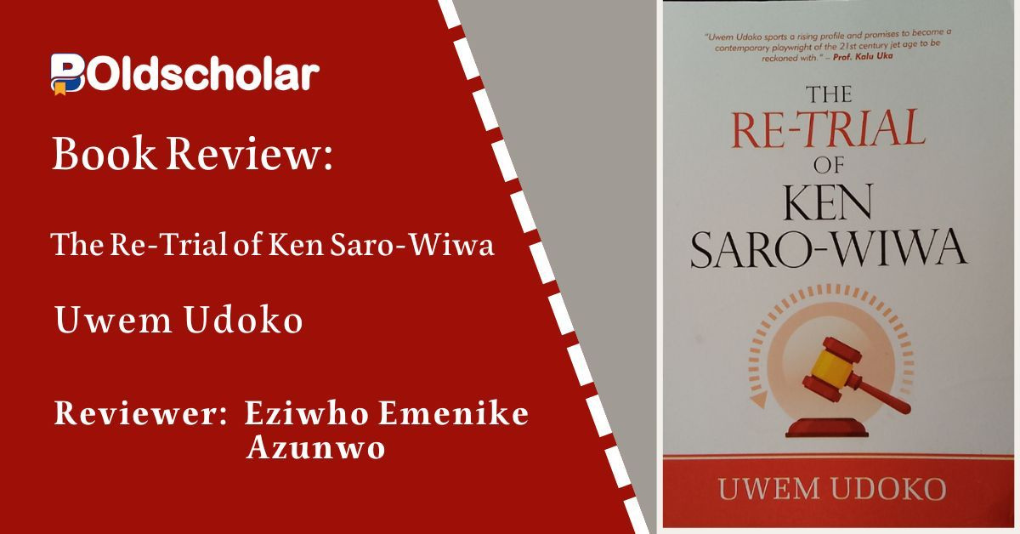
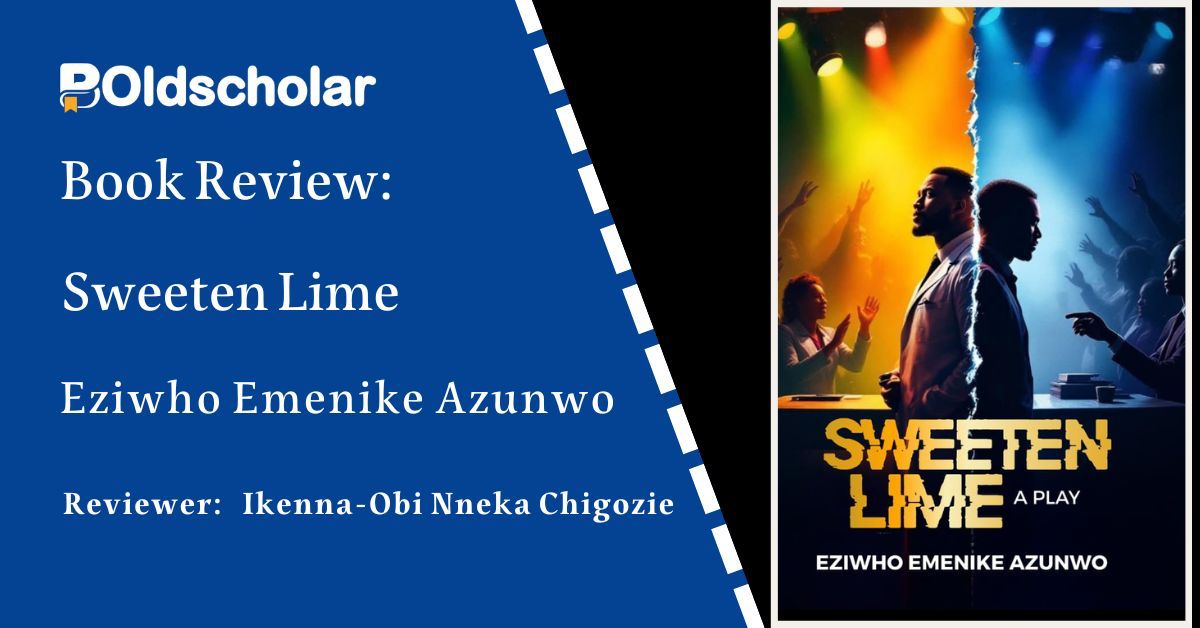
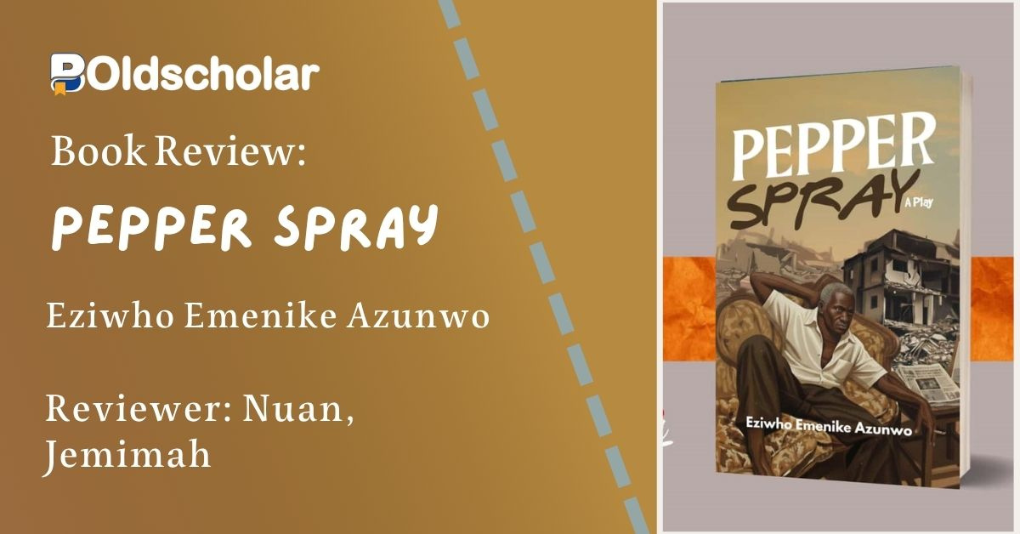
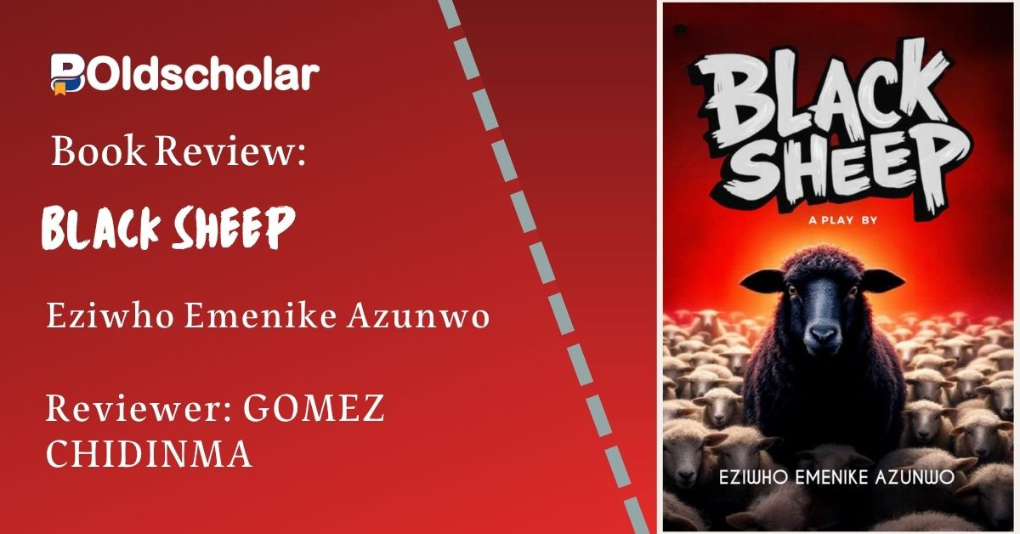
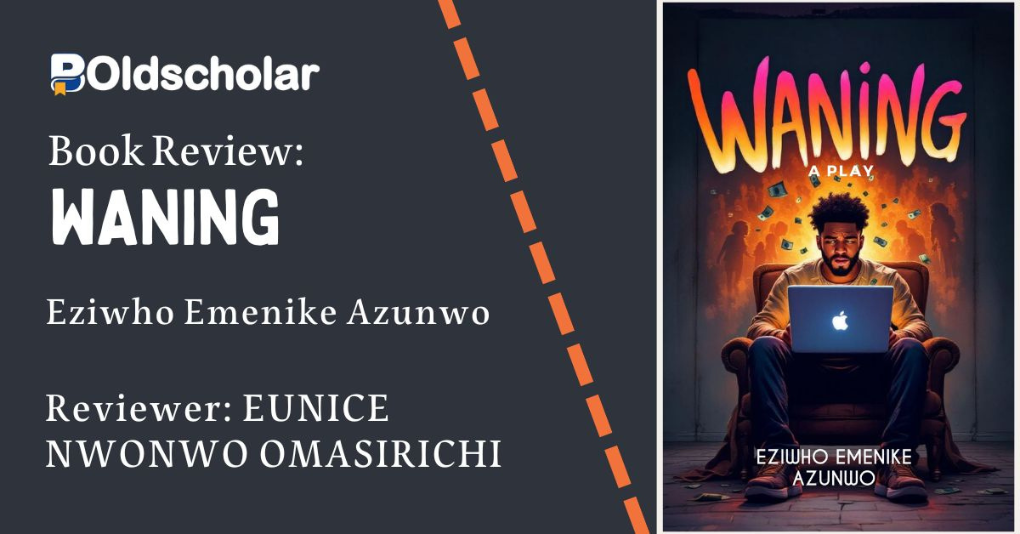
Be the first to comment on this post